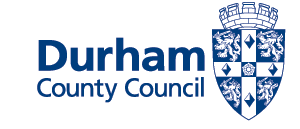Breastfeeding
Breastfeeding is the healthiest way to feed your baby.
Giving your baby breast milk only (exclusive breastfeeding ) is recommended for around the first six months of your baby's life. After that, giving your baby breast milk alongside other food will help them continue to grow and develop.
Any amount of breastfeeding has a positive effect. The longer you breastfeed, the longer the protection lasts and the greater the benefits. Breastfed babies have:
- less chance of diarrhoea and vomiting
- fewer chest and ear infections and therefore don't have to go to hospital as a result
- less likelihood of becoming obese and therefore developing type 2 diabetes and other illnesses later in life
- less chance of developing eczema and asthma
Infant formula doesn't give your baby the same nutrients or provide the same protection. Breast milk adapts to meet your baby's changing needs.
Family Hubs - Breastfeeding - video transcript (PDF) [87KB]
Why breastfeed?
- Breast milk is the only natural food designed for your baby.
- Breastfeeding protects your baby from infections and diseases.
- Breast milk provides health benefits for your baby.
- Breastfeeding provides health benefits for mum.
- It's free.
- It's available whenever and wherever your baby needs a feed.
- It's the right temperature.
- It can build a strong physical and emotional bond between mum and baby.
- It can give you a great sense of achievement.
Breastfeeding doesn't only benefit your baby. It benefits your health too. Breastfeeding is good for mums as it:
- lowers your risk of getting breast and ovarian cancer
- naturally uses up to 500 calories a day
Breastfeeding also saves you money - infant formula, the sterilising equipment and feeding equipment can be expensive.
Breastfeeding celebration transcript (PDF) [107KB]
Local help and support
Life with a new baby is often full of surprises and most mums have questions or concerns. As well as midwives and health visitors, there is lots of support available when you need it.
The infant feeding support team is made up of mams who are currently breastfeeding, or have breastfed their own baby, and would like to support you and your baby to enjoy breastfeeding. These include:
Family Peer Supporters who are employed by the NHS and are fully qualified to run groups, provide telephone support and carry out home visits as part of their work.
Volunteer Peer Supporters who work closely with the infant feeding team to support you with breastfeeding.
Peer supporters can offer breastfeeding information and support in a variety of settings, such as antenatal sessions, at clinics and at infant feeding support groups.
Peer supporters are not trained to treat medical conditions in either you or your baby; but are able to direct you to the best source of support and help from a health professional. As mums themselves they all appreciate the challenges of being a new parent, particularly in the early days with a baby! They are great listeners and are skilled at supporting you to enjoy your breastfeeding experience, whether this is your first baby or not. They all give their free time willingly to provide support. They can offer you reassurance and confidence to breastfeed for as long as you wish. If you would like to be put in touch with a peer supporter please ask your health professional who will be able to provide you with further details.
Early latch support (appointment only)
We know that as a new mum you might struggle with breastfeeding. Our early latch support appointments are for babies aged between 10 days and 6 weeks, and will give you hints and tips to help you breastfeed successfully.
During the appointment we will ask you questions about how your baby, such as how many wet nappies they have a day, how many times are they feeding and, with your permission, we would like to watch you breastfeed your baby (we might call this a breastfeeding assessment). This will help us to understand whether your baby is getting enough milk to grow healthily and help you to continue to breastfeed your baby.
Family Hubs - Early Latch - video transcript (PDF) [80KB]
Appointments are available at the following Family Hubs and can be booked with your health visitor.
| Hub | Day | Time |
|---|---|---|
Ferryhill Family Hub | Tuesdays | Between 9.30am and 12.30pm |
Stanley Family Hub | Thursdays | Between 10.00am and 1.00pm |
Easington Family Hub | Fridays | Between 10.00am and 1.00pm |
Other support available
If you have any questions or concerns about breastfeeding, support is available:
- ask your midwife, health visitor or GP
- pop along to one of the Infant feeding support groups across the county
- your local Family Hub can offer support and advice on breastfeeding - Find out what's on at your nearest Family Hub
- NHS: Benefits of breastfeeding
- the National Breastfeeding Helpline is available on 0300 100 0212
- NHS Start for Life offers help and advice on breastfeeding and other parenting topics
- County Durham Infant Feeding on Facebook has lots of hints and tips, as well as information about groups to support you.
The County Durham Breastfeeding Friendly Scheme
The County Durham Breastfeeding Friendly Scheme supports breastfeeding families across the county. By taking part in this scheme, cafés, restaurants, leisure centres and community venues show that they are committed to ensuring their staff and premises are welcoming and supportive of breastfeeding mums. Venues in the scheme display a breastfeeding friendly window sticker, so you can recognise them. Staff in these venues have attended a breastfeeding awareness session and support the scheme.
The Equality Act 2010 has made it illegal for anyone to ask a breastfeeding woman to leave a public place. Don't be afraid to ask if there is a private area in which to breastfeed - this should never be the toilets.
- Email publichealth@durham.gov.uk
- Telephone 03000 264 109

 Share this page on Facebook
Share this page on Facebook
 Share this page on Twitter
Share this page on Twitter
 Print this page
Print this page





